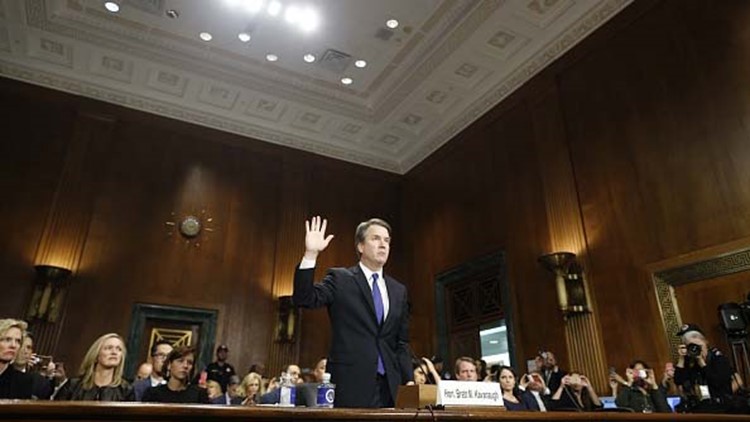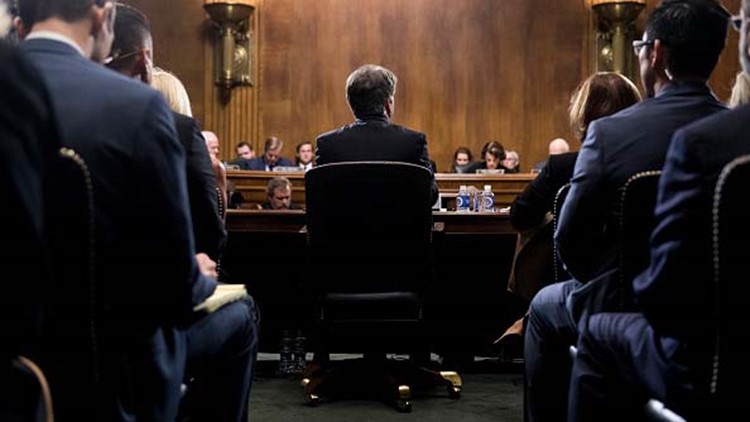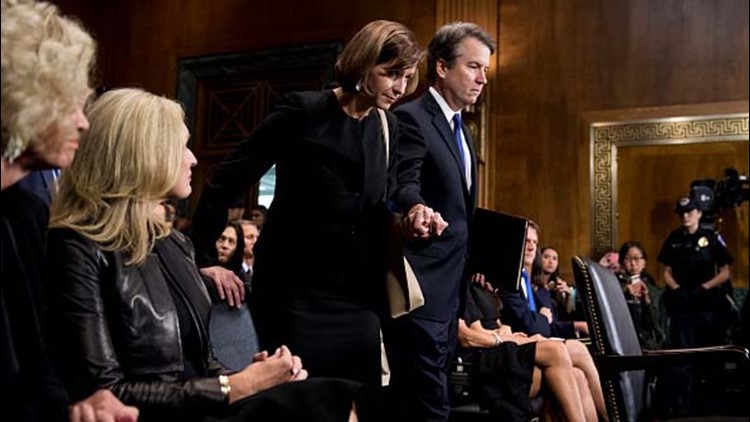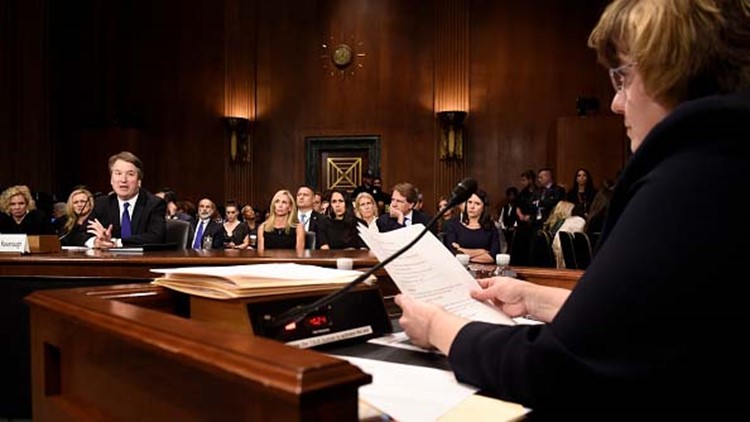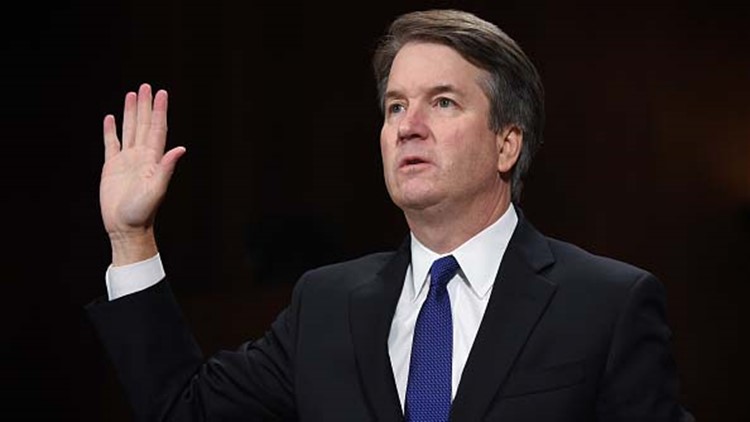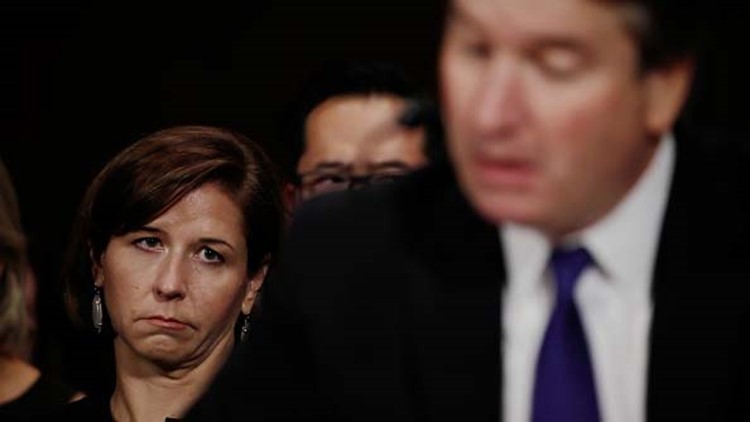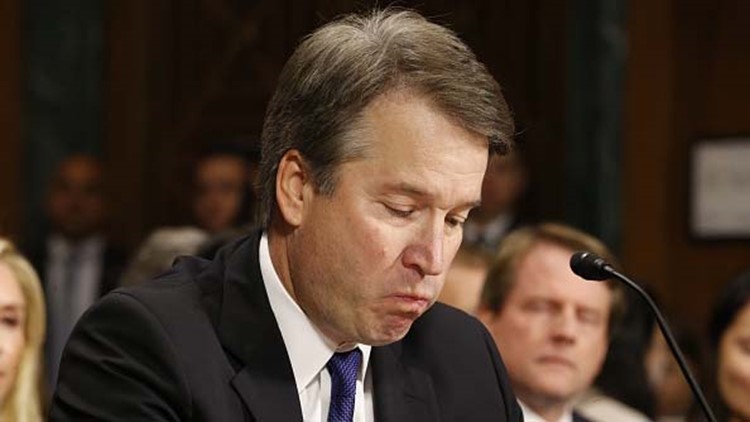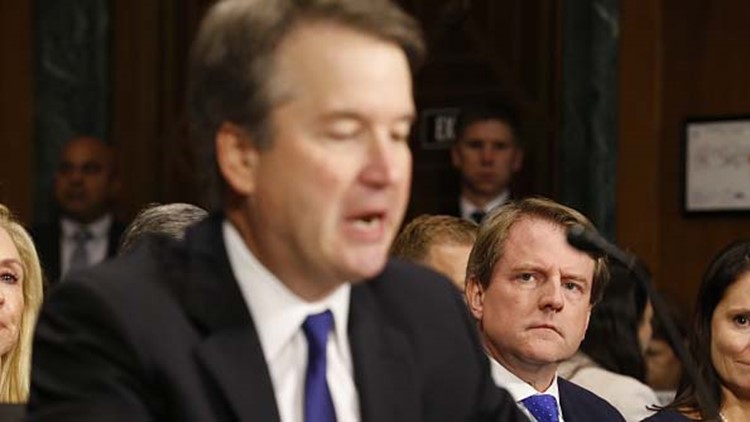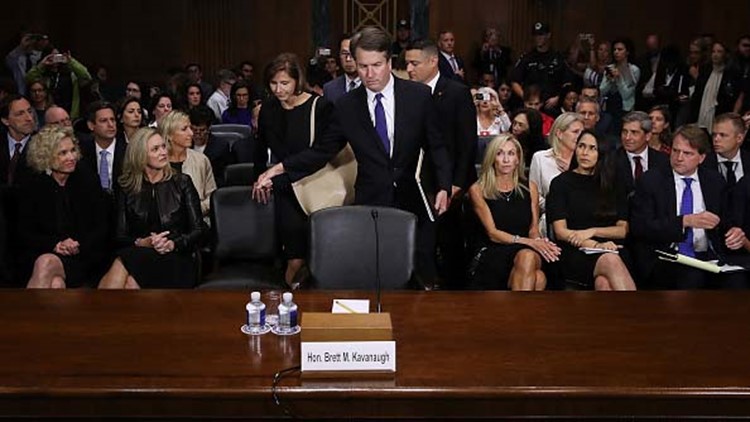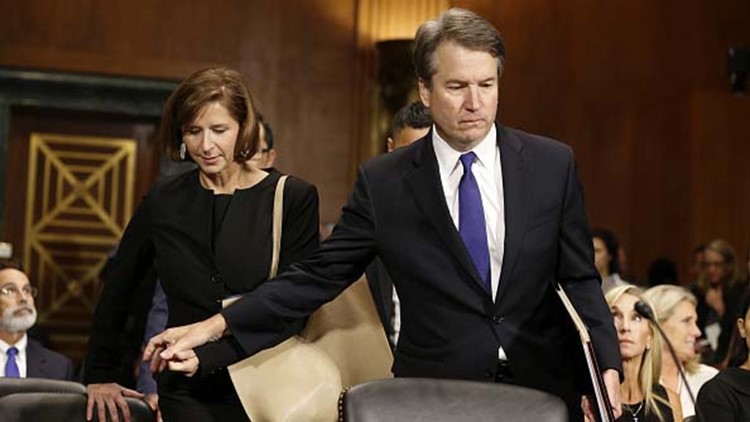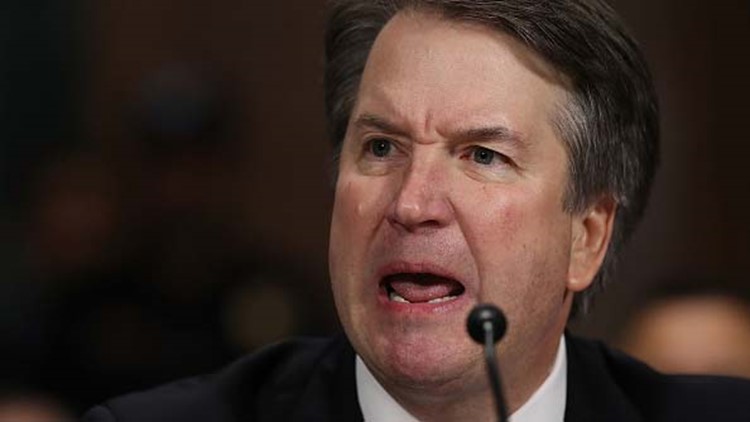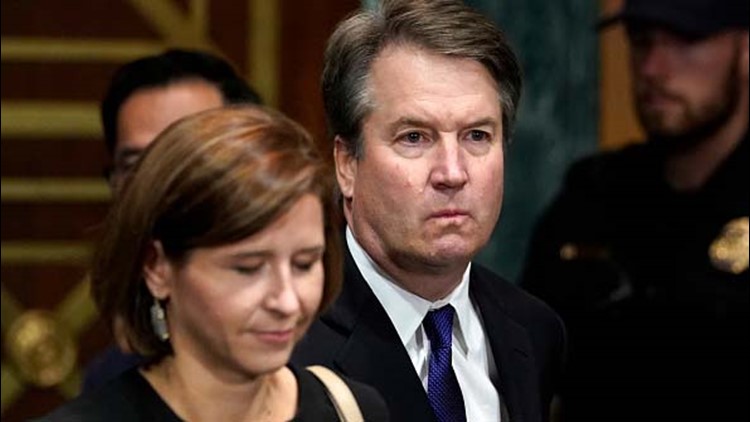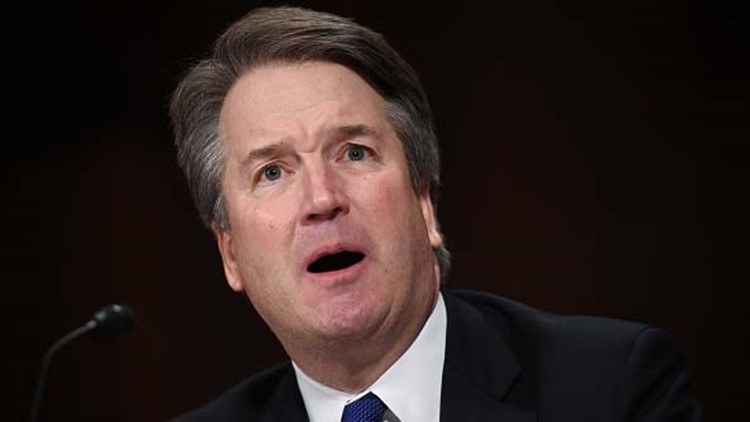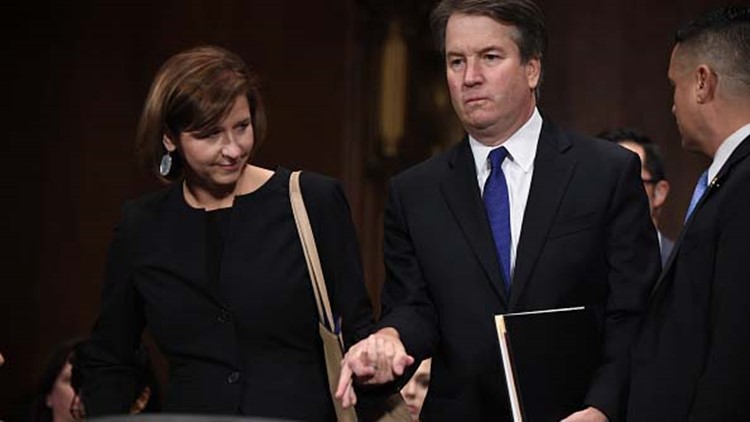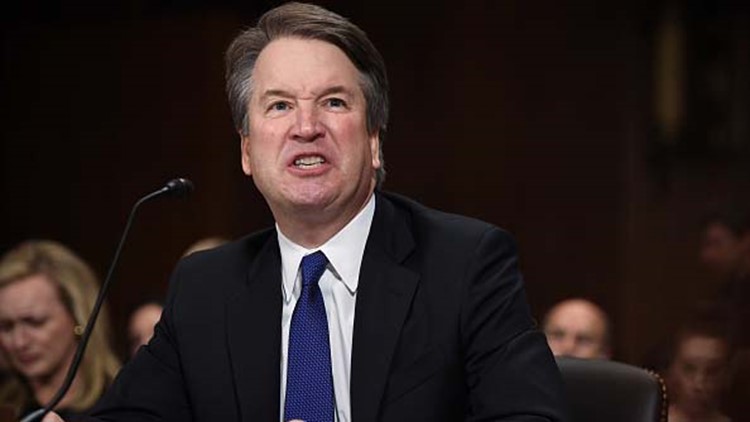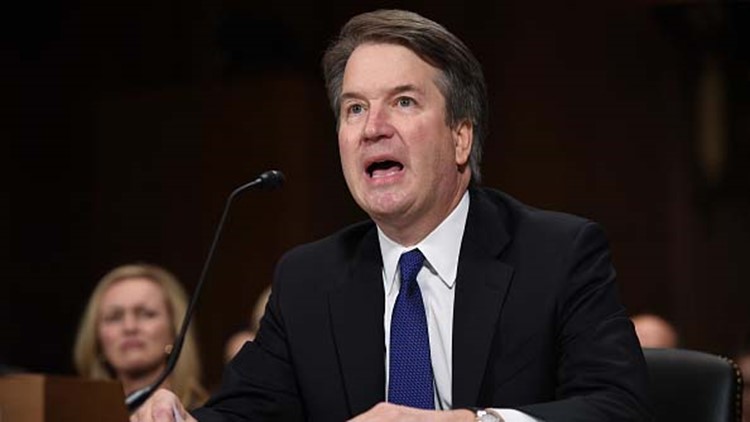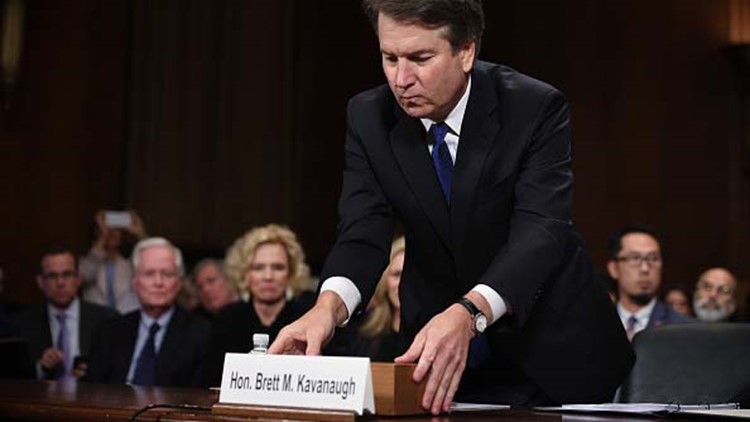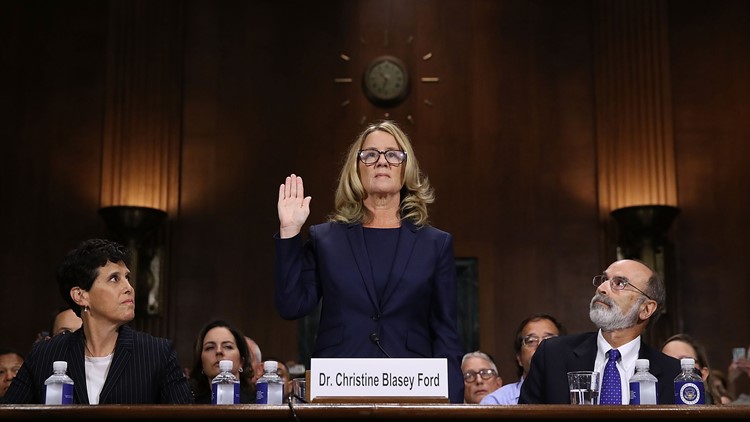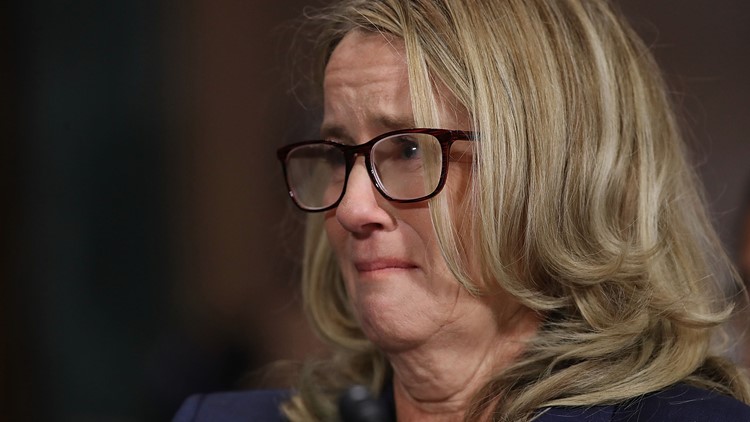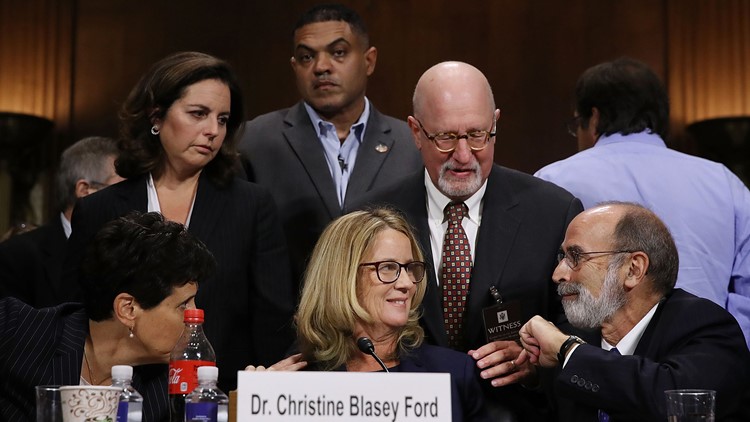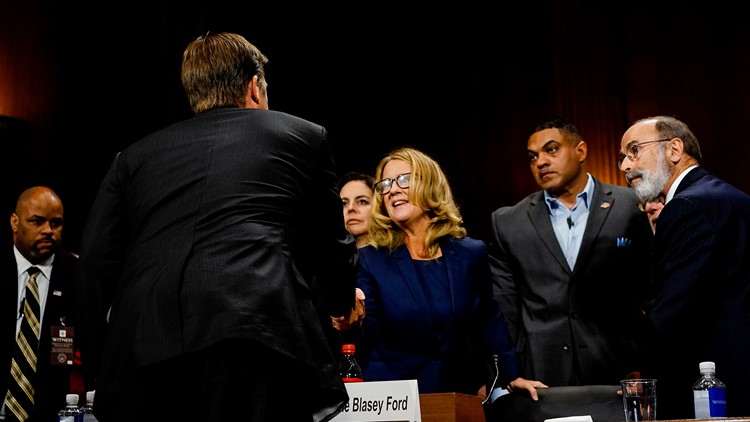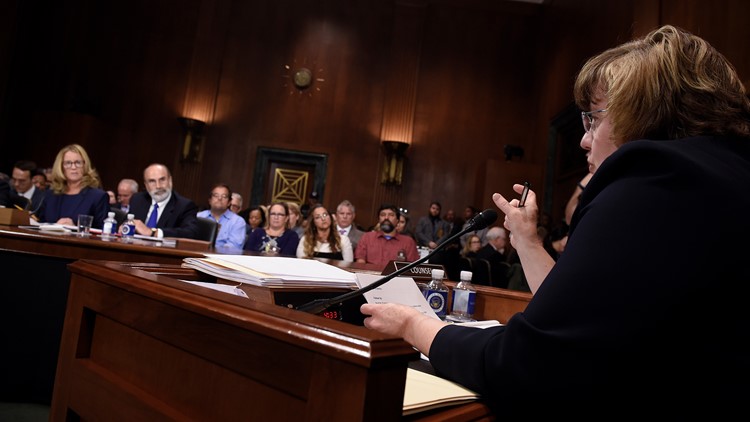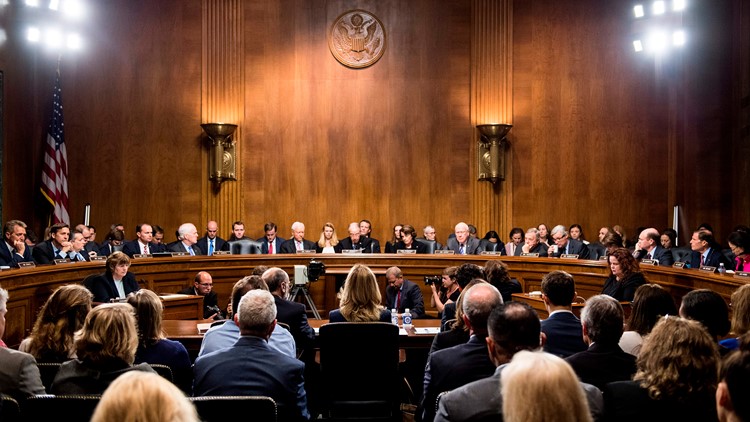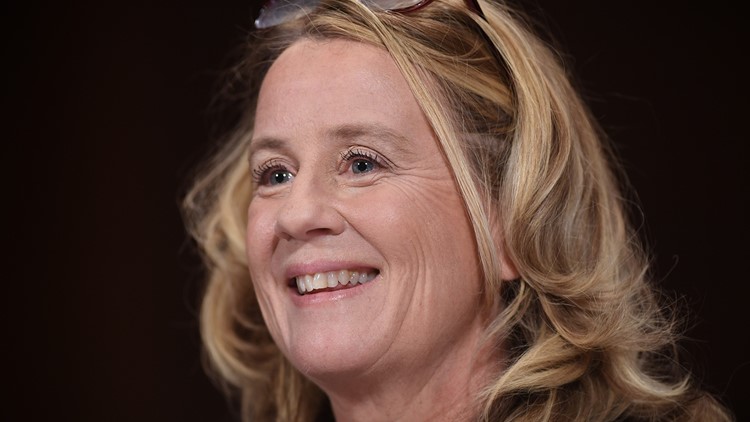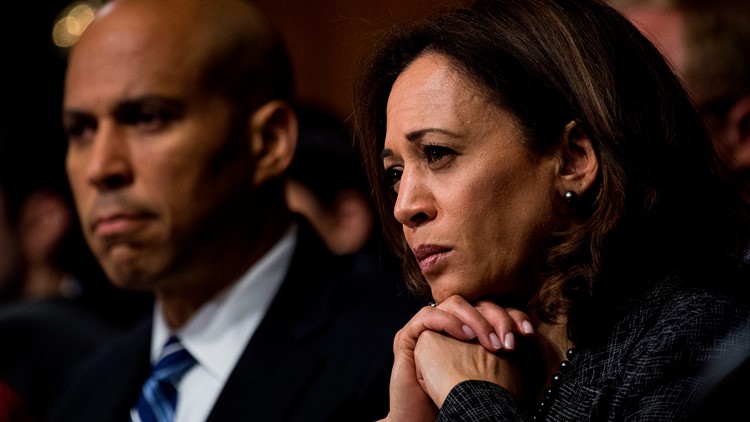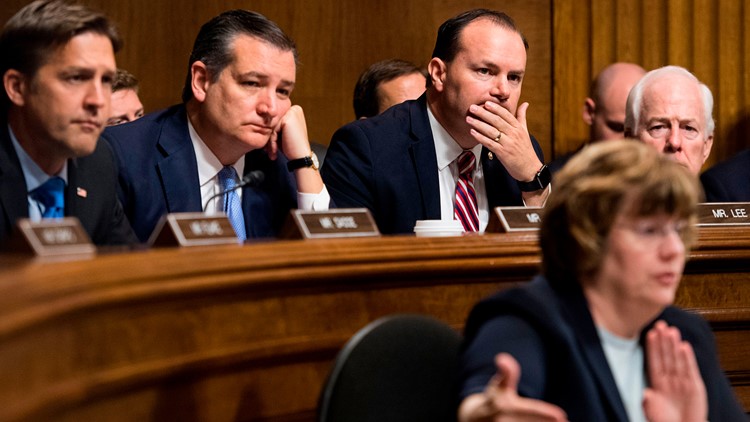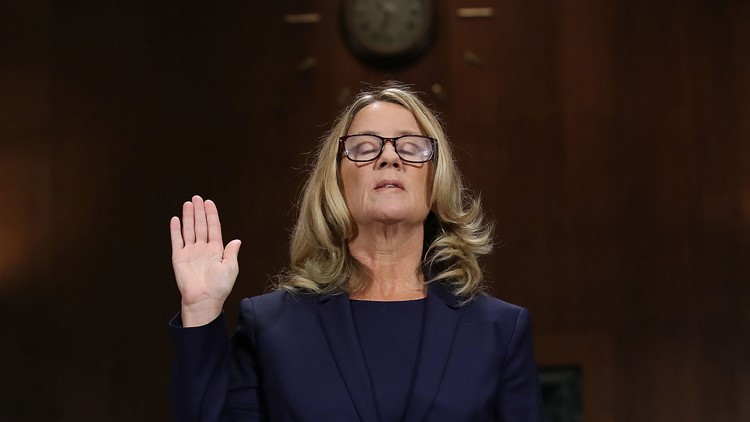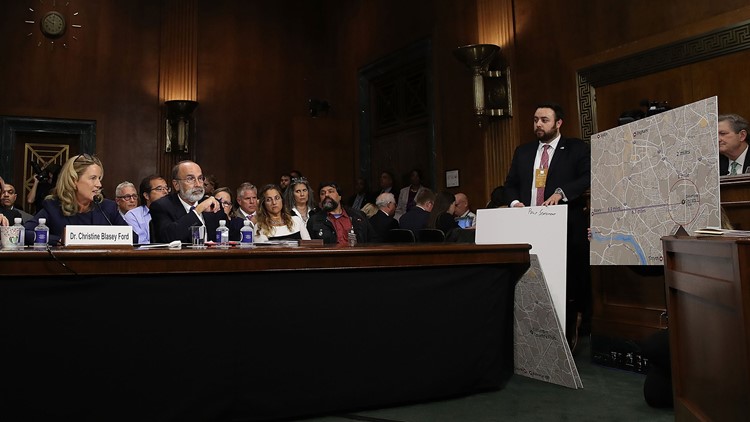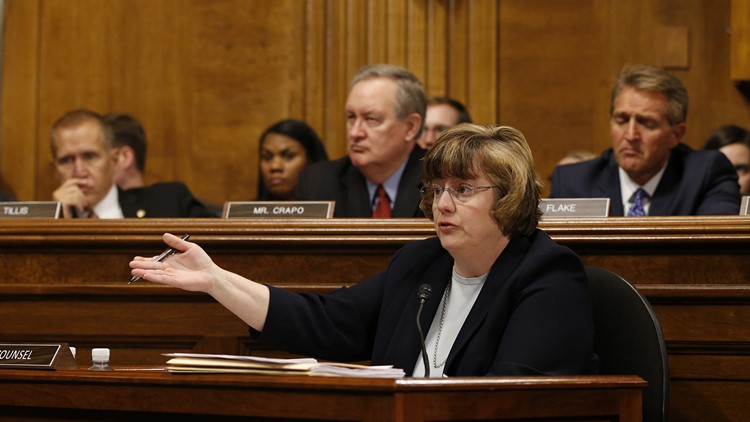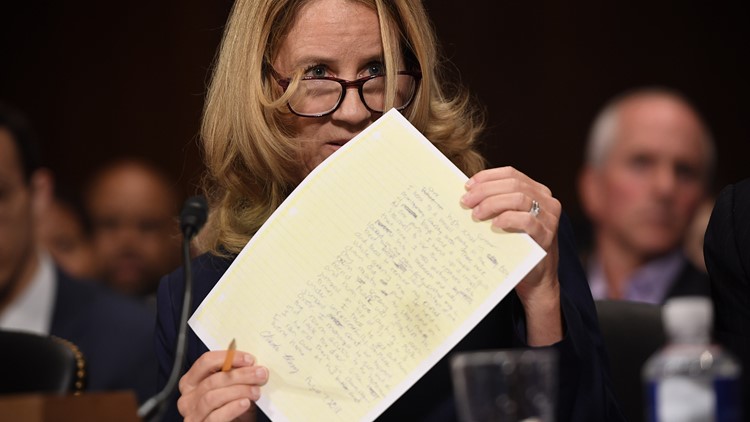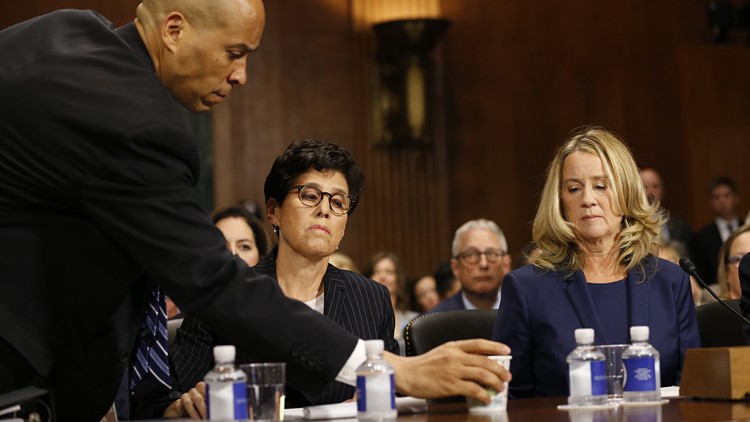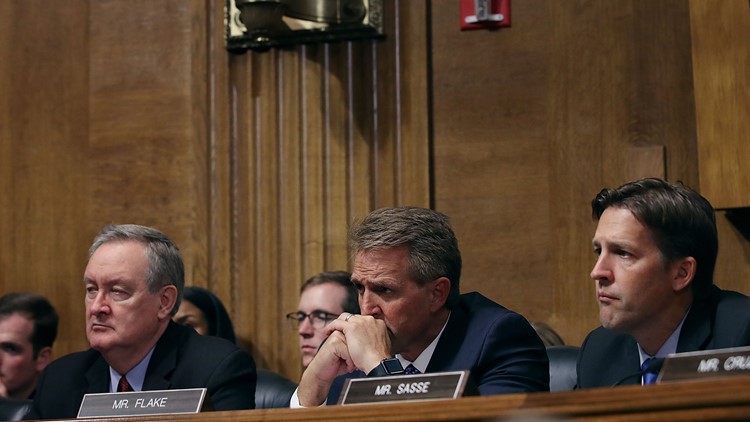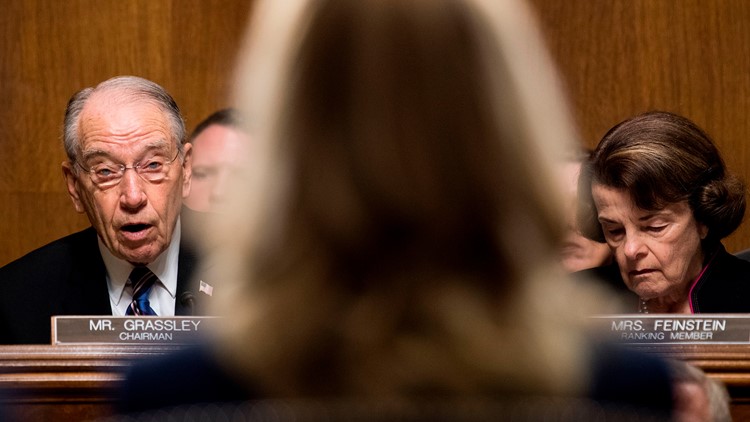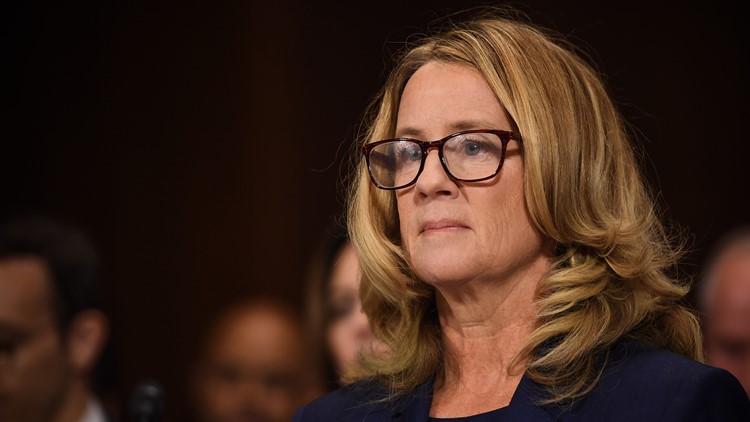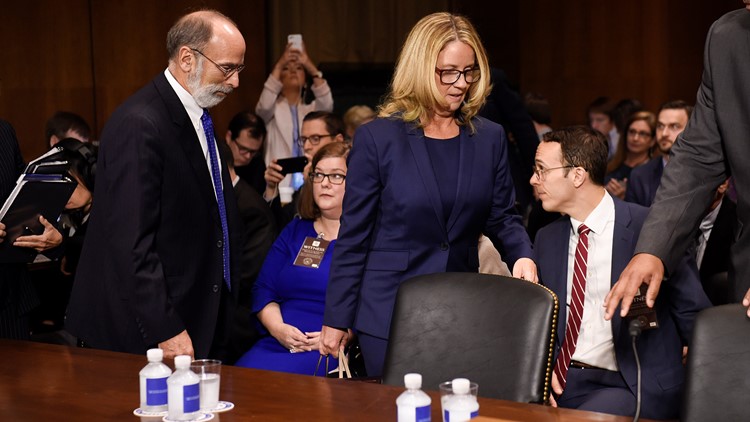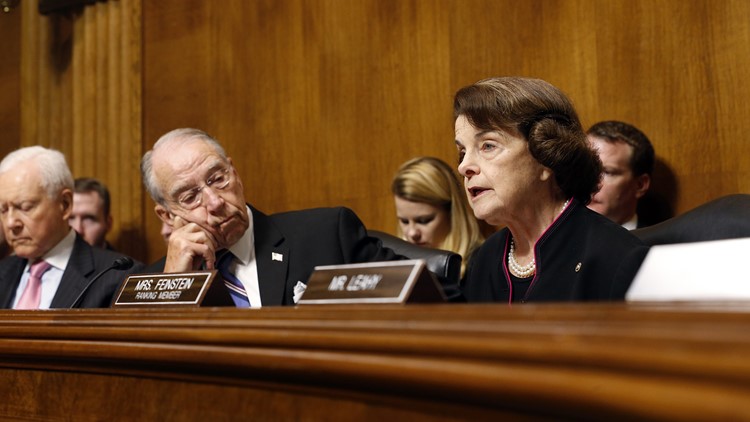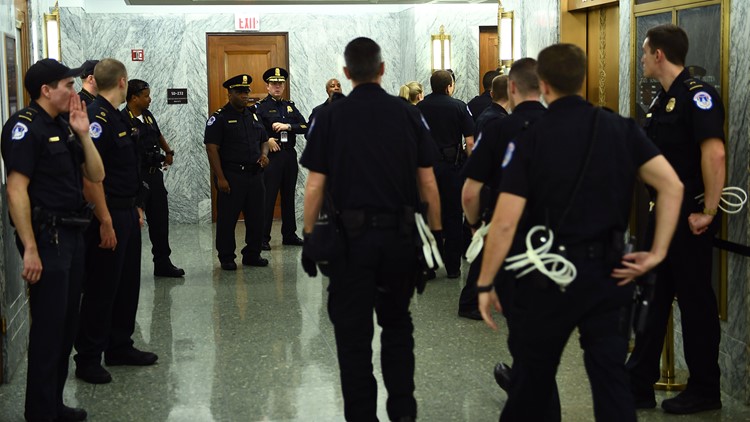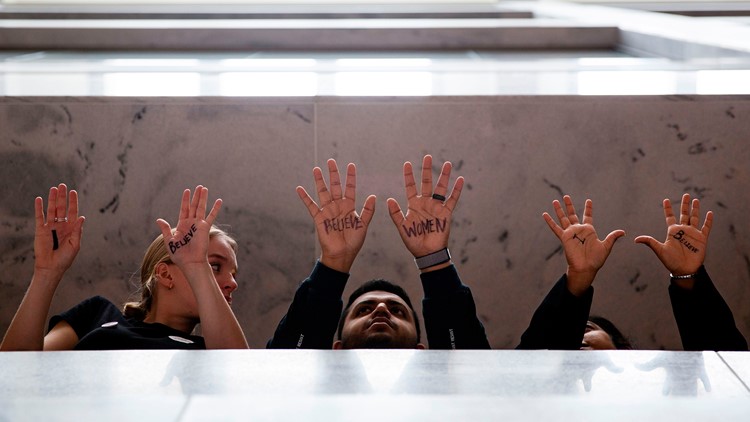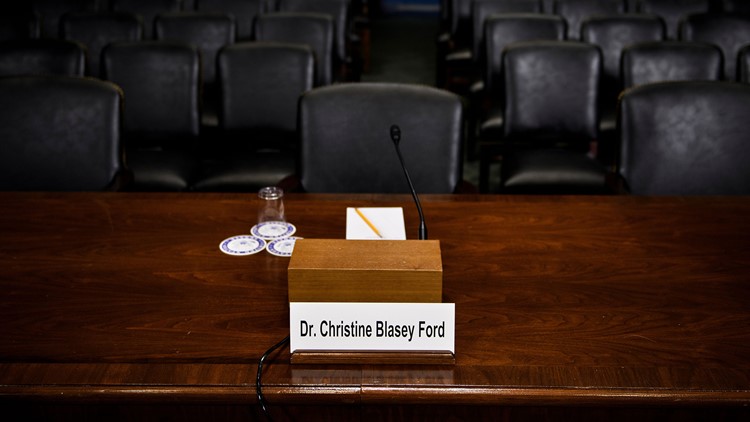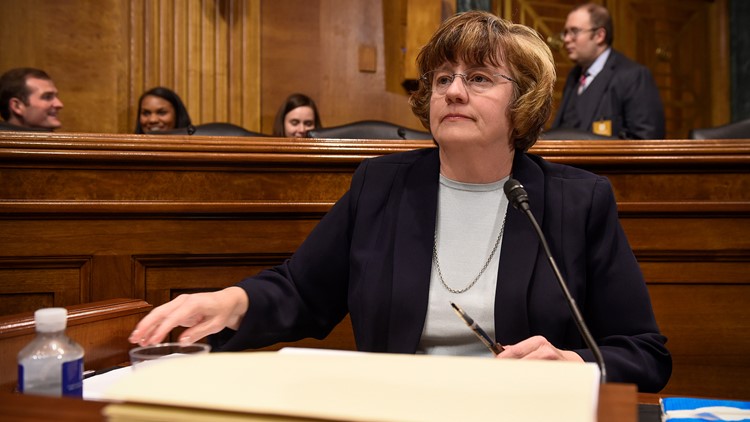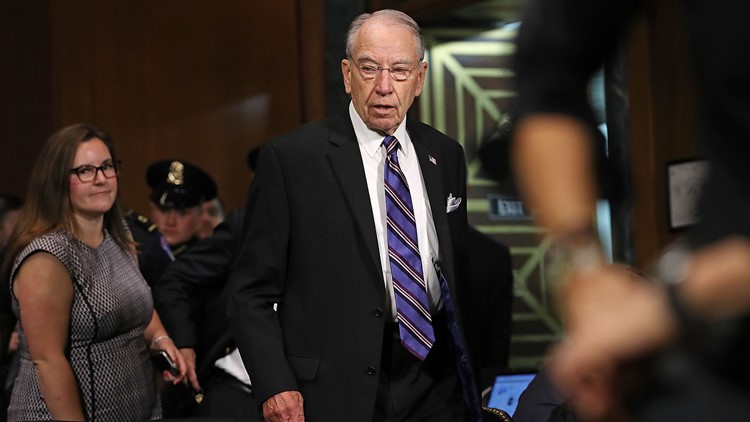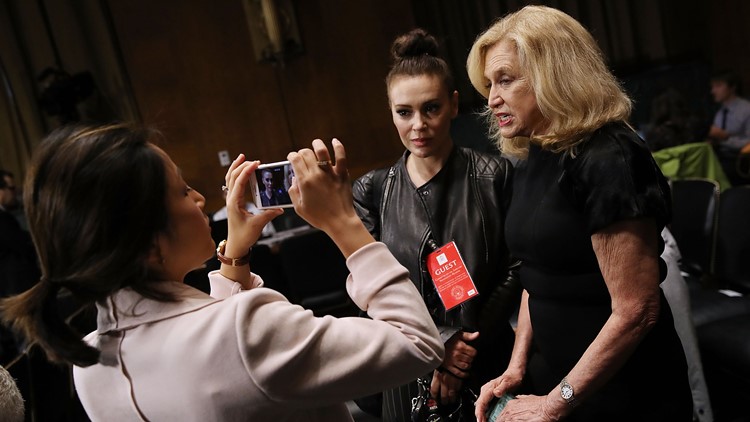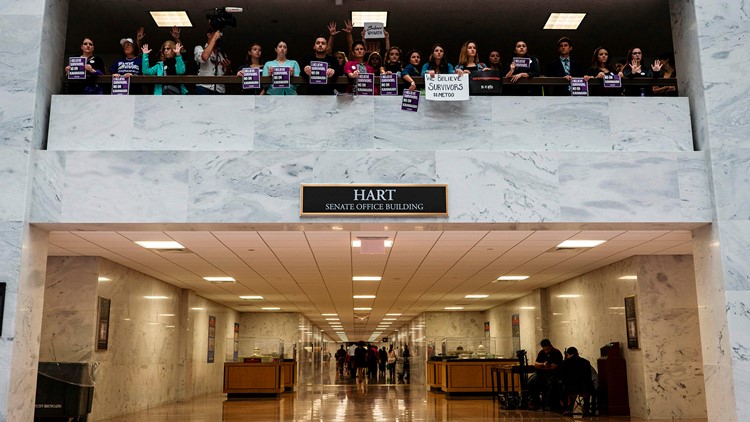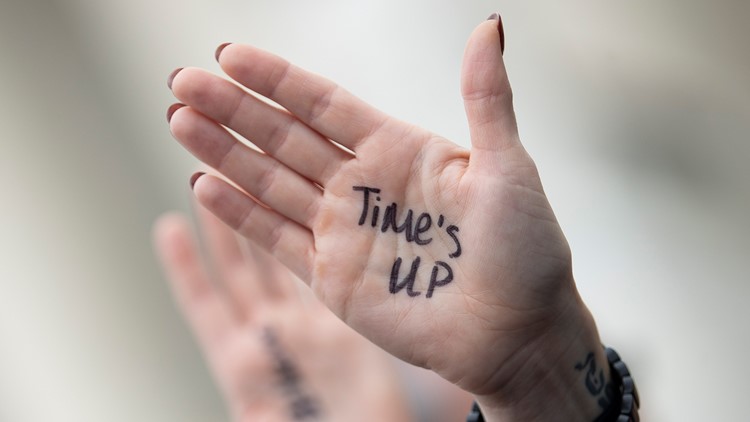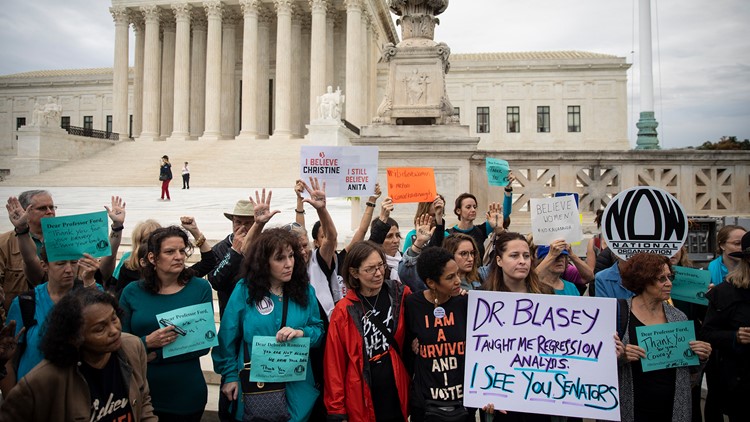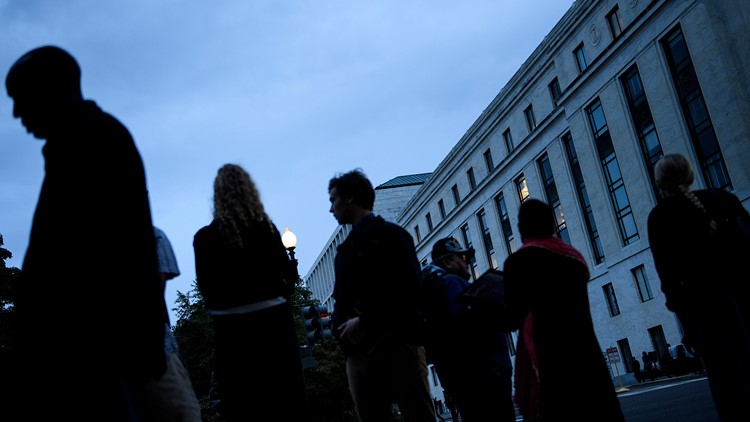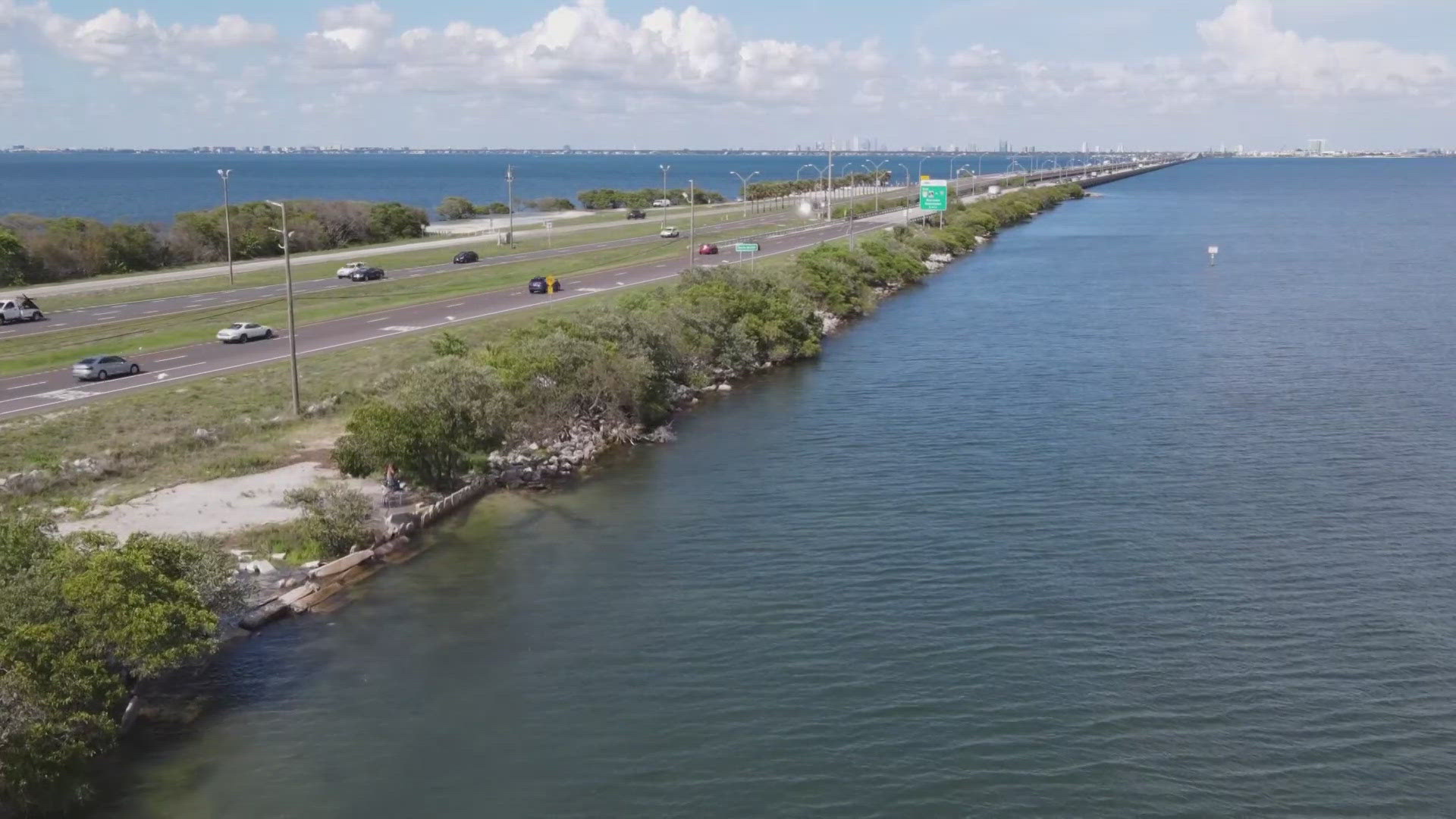WASHINGTON — Emotionally battling to rescue his Supreme Court nomination, Brett Kavanaugh fought back Thursday against allegations that he'd sexually assaulted Christine Blasey Ford when both were high school students, telling Congress that allegations by her and others have "totally and permanently destroyed" his family and his reputation.
In a loud voice, the conservative jurist told the Senate Judiciary Committee that his confirmation process had become "a national disgrace."
"You have replaced 'advice and consent' with 'search and destroy,'" he said.
Shortly before, Ford had told the same senators that she was "100 percent" certain a drunken young Kavanaugh was the one who had pinned her to a bed, tried to remove her clothes and clapped a hand over her mouth as she tried to yell for help. A Kavanaugh friend stood by and they both laughed uproariously during the incident, she testified.
Kavanaugh told the senators, his voice raised: "I have never done this to her or to anyone."
With his support among Senate Republicans in question, he also said he would not step side.
"You may defeat me in the final vote, but you'll never get me to quit, never."
Behind him in the audience, his wife, Ashley, sat looking stricken. He himself was close to tears when he mentioned his mother and daughter and, later, his father.
Republican Sen. Lindsey Graham claimed the Democrats' treatment of Kavanaugh is the "most despicable thing" he has seen in politics.
Graham implored that a vote against Kavanaugh would "legitimize the most despicable thing I have ever seen in politics." He also called the Democrats' tactics "the most unethical sham."
Christine Blasey Ford declared Thursday that Brett Kavanaugh sexually assaulted her as he and a friend shared "uproarious laughter" in a locked room at a 1980s high school gathering, recounting her allegations to Congress and a riveted nation in a drama that threatens to derail Kavanaugh's Supreme Court nomination.
Her account, delivered in a soft and sometimes-halting voice, came as the Senate Judiciary Committee held an extraordinary session that Republicans hope will salvage Kavanaugh's chances of joining the high court. She showed no hesitancy in affirming the crucial question about the alleged incident, telling senators her certainty that Kavanaugh was her attacker was "100 percent."
The conservative jurist's Senate confirmation had seemed assured until Ford came forward and then other women emerged with additional allegations of sexual misconduct. Kavanaugh, now 53, has denied them all and awaited his own chance to testify later Thursday. Ford testified for about three hours, not including time senators took out for breaks and lunch.
In an election-season battle being waged along a polarized nation's political and cultural fault lines, President Donald Trump and most Republicans have rallied behind Kavanaugh with a chance to cement the conservative majority of the court for a generation. But it has become less clear that they will be able to hold GOP senators behind Trump's nominee.
Republicans have accused Ford and the other women of making unproven allegations and have questioned why they'd not publicly revealed them for decades.
Among the television viewers on Thursday was Trump, who has mocked the credibility of Kavanaugh's accusers. The president watched aboard Air Force One as he returned to Washington from the United Nations, said White House spokeswoman Sarah Huckabee Sanders.
During a break in the hearing, some of Kavanaugh's strongest supporters gave no indications of wavering.
"You need more than an accusation for evidence. You need corroboration. That's what's missing here," said No. 2 Senate GOP leader John Cornyn of Texas.
But Sen. Orrin Hatch, R-Utah, said of Ford, "She's a good witness. She's articulate, an attractive person." Asked what he meant by attractive, Hatch said, "In other words, she's pleasing."
Ford has said Kavanaugh trapped her on a bed and tried undressing her, grinding his body against her and muffling her cries with her hand. "I believed he was going to rape me," she said in her opening statement.
Democrats have rallied strongly behind Ford.
Asked by Patrick Leahy of Vermont for her strongest memory of the alleged incident, Ford mentioned the two boys' "laughter — the uproarious laughter between the two and they're having fun at my expense."
When the committee's top Democrat, Sen. Dianne Feinstein of California, asked how she could be sure that Kavanaugh was the attacker, Ford said, "The same way I'm sure I'm talking to you right now." Later, she told Sen. Dick Durbin, D-Ill., that her certainty was "100 percent."
The 51-year-old California psychology professor spoke carefully and deliberately during the hearing, using scientific terminology at one point to describe how a brain might remember details of events decades later. The boys' laughter was "indelible in the hippocampus," she said, using her scientific expertise to describe how memories are stored in the brain and adding, "It's locked in there."
Ford has said Kavanaugh friend Mark Judge was also in the room when she was assaulted. Judge has said he doesn't remember the incident and has declined to appear before the panel.
She also recounted how the alleged attack altered her life, describing anxiety and claustrophobia that prompted her to demand adding a second front door when her home was remodeled. She also described nervousness while flying.
As Ford delivered her testimony, the hearing room fell nearly silent, with senators leaning forward to listen. Amy Klobuchar, D-Minn., seemed to wipe away a tear.
The Judiciary panel's 11 Republicans — all men — let Rachel Mitchell, a veteran sex crimes prosecutor from Arizona, ask their questions. She began by expressing sympathy for Ford, who'd said she was "terrified" to testify. Said Mitchell, "I just wanted to let you know, I'm very sorry. That's not right."
Mitchell led Ford through a detailed recollection of the events she says occurred on the day of the alleged incident. But under the committee's procedures, the career prosecutor was limited to five minutes at a time, interspersed between Democrats' questions, creating a choppy effect as she tried piecing together the story.
Mitchell's questions steered clear of the details of the alleged assault and focused at times on whether Ford was coordinating with Kavanaugh opponents. Mitchell asked who was financing her legal and security expenses. Ford responded that she had gotten help from well-to-do people back home and was aware of public contributions at the website GoFundMe.com but also said she'd not focused on such matters amid her family's recent moves due to threats.
PHOTOS: Kavanaugh-Ford hearing in the Senate
Ford said that she had first contacted only her member of Congress, Rep. Anna Eshoo, a Democrat, with her story and that Eshoo recommended contacting Feinstein, also from California.
At one point, Mitchell noted that Ford didn't mention Kavanaugh as her attacker before she was in couples therapy with her husband in 2012. She also seemed to question Ford's fear of flying — the professor had expressed a reluctance to fly to Washington but eventually did so — noting Ford's travel to Hawaii and Costa Rica.
At times, committee Chairman Chuck Grassley, R-Iowa, clashed with Democrats. When Klobuchar said the committee would not allow Judge to testify during the hearing, Grassley said, "You got what you wanted. I'd think you'd be satisfied."
Kavanaugh's teetering grasp on winning confirmation was evident when Sen. Susan Collins, R-Maine, expressed concern, in a private meeting with senators Wednesday, about a new, third accuser, according to a person with knowledge of the gathering. Republicans control the Senate 51-49 and can lose only one vote. Collins is among the few senators who've not made clear how they'll vote.
Collins walked into that meeting carrying a copy of Julie Swetnick's signed declaration, which included fresh accusations of sexual misconduct against Kavanaugh and his high school friend Judge.
A handful of Republican governors facing re-election in left-leaning states called on the U.S. Senate Thursday to delay a confirmation vote on Supreme Court nominee Brett Kavanaugh to allow time for an investigation into sexual misconduct allegations.
The governors don't have an official role in the nomination process, but their voices could add pressure to the Senate's consideration and help distance the governors from President Donald Trump.
Three governors who called for a delay in the vote have been critical of Trump on at least some issues in the past and are seeking re-election in Democratic-leaning states.
Massachusetts Gov. Charlie Baker told reporters there needs to be a full and independent investigation of the claims before a vote is taken.
Through a spokeswoman, Maryland Gov. Larry Hogan said Kavanaugh's nomination should not proceed without a full investigation of the allegations.
Some other Republican governors and candidates for the office stopped short of calling for a full investigation.
Mike DeWine, the Republican running for the open governor's seat in Ohio, said the Senate needs to look carefully at the evidence, but without specifically calling for a delay in the confirmation vote.
Brian Sandoval, the outgoing Republican governor of Nevada, and Scott Walker, running for re-election in Wisconsin, made similar comments.

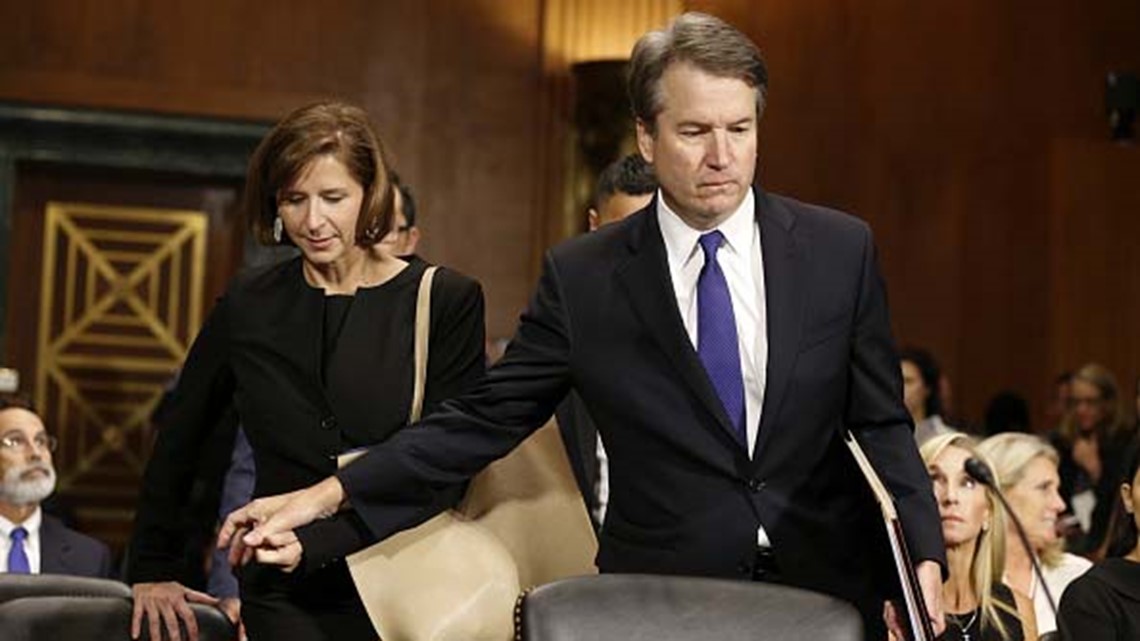
Republicans are pushing to seat Kavanaugh before the November midterms, when Senate control could fall to the Democrats and a replacement Trump nominee could have even greater difficulty.
In a sworn statement, Swetnick said she witnessed Kavanaugh "consistently engage in excessive drinking and inappropriate contact of a sexual nature with women in the early 1980s." Her attorney, Michael Avenatti, who also represents a porn actress who is suing Trump, provided her sworn declaration to the Judiciary panel.
Meanwhile, the lawyer for Deborah Ramirez, who says Kavanaugh exposed himself to her at a party when they attended Yale University, raised her profile in a round of television interviews.
Moments before committee chairman Grassley gaveled his panel into session, Ramirez tweeted her support for Ford: "They want us to feel alone and isolated but I'm there wrapping my arms around you and I hope you feel the people of this nation wrapping their arms around all of us."
In Kavanaugh's prepared testimony, he acknowledged drinking in high school with his friends, but said he'd never done anything "remotely resembling" what Ford describes. He said he never had a "sexual or physical encounter of any kind" with her.
He also provided the committee with detailed calendar pages listing in green-and-white squares the activities that filled his summer of 1982 when he was 17 years old — exams, movies, sports and plenty of parties. That's the year when Ford says she believes the assault occurred.
Nothing on the calendar appears to refer to her.
Ford released sworn statements from people who said she had told them about the assault in later years.
___
Associated Press writers Kevin Freking, Mary Clare Jalonick, Padmananda Rama, Matthew Daly, Julie Pace and AP photographers J. Scott Applewhite and Carolyn Kaster contributed to this report.


